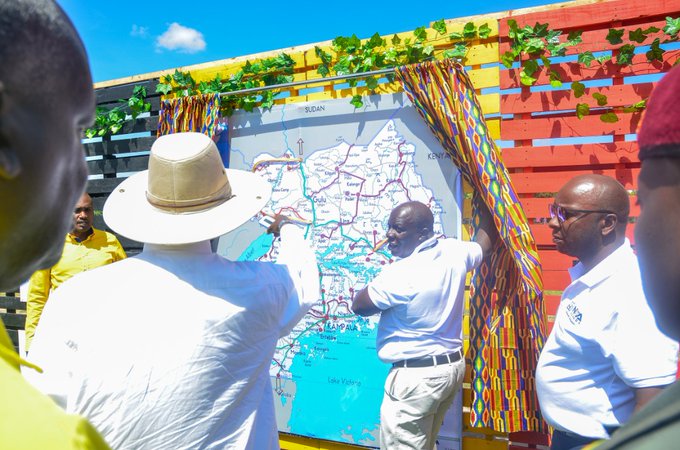President Yoweri Museveni was Saturday in Koboko District to launch phase four of the national backbone infrastructure connectivity project for West Nile and Karamoja sub-regions. The President was accompanied by district leaders from the region including Minister Evelyn Anite, Kasiano Wadri and dignitaries from World Bank and the International Development Community.
Government through NITA Uganda with funding from World Bank under the Regional Communications Infrastructure programmer(RCIP), is implementing the National Backbone Infrastructure and e-Government Infrastructure (NBI/EGI) to connect districts and towns across Uganda.
National Backbone & amp; e-govt Infrastructure project will connect towns including Govt offices via optical fibre cable network to reduce cost of internet &public administration, support delivery of secure e-Govt services & enhance communications services in Uganda.
NITA-U successfully completed the implementation of three phases of the NBI project which connected 39 districts, 60 towns and 400 Government offices.
As a result of these connections the cost of internet of across Government entities has progressively reduced from USD 1,200 per Mbps per month to USD 70 per Mbps per month.
The NBI/EGI has provided Government with seamless and secure communication which is enabling Government to use of ICT to deliver public services in a convenient, efficient customer-oriented and cost-effective way.
Across region, there is significant reduction in price of internet.
NITA Uganda’s internet pricing is competitive to magnitude of being 56% cheaper when benchmarked against regional pricing, i.e.USD 70 per Mbps, NITA-U price, vs USD 158 per Mbps, regional average.
Progressive reduction in internet cost has increased distribution of electronic content among public universities.
Research & Educations Network of Uganda (RENU) is utilizing NBI 2transport educational content to public Universities -Gulu, Makerere Uni, UMI, MUBS, MUST among others.
Various innovation & amp;incubation hubs such as Camtech, Makerere incubation & innovation centre etc. are also benefiting from this internet bandwidth and have established a cumulative average of 150 startups resulting into 750 jobs by end of 17/18.


